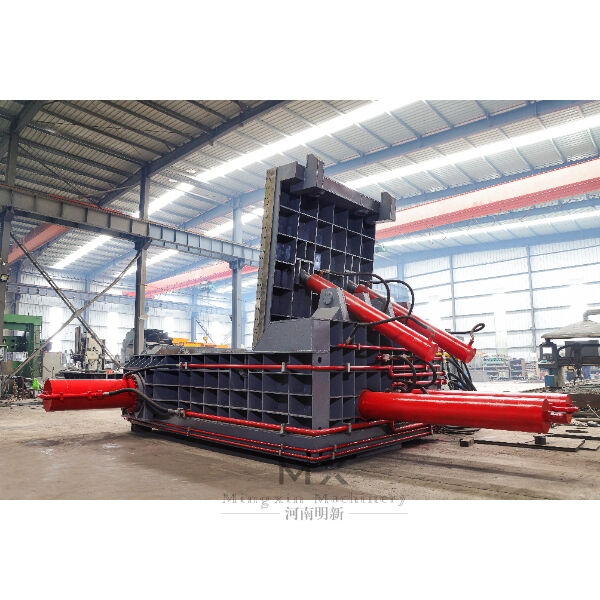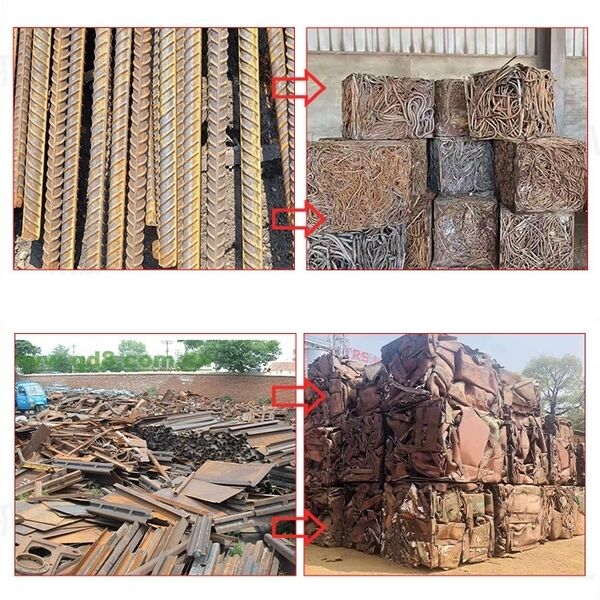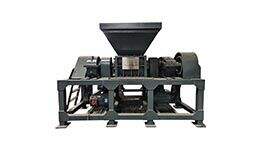Hydraulic Metal Baler: Revolutionizing Scrap Metal Recycling
In industries where scrap metal is a byproduct, managing and recycling this waste efficiently is a significant challenge. Enter the Hydraulic Metal Baler—a powerful machine designed to compress scrap metals into compact, dense bales. This not only optimizes storage and transportation but also facilitates recycling. Let’s explore how the hydraulic metal baler works, its benefits, and why it’s a game-changer for industries dealing with scrap metal.
What is a Hydraulic Metal Baler?
A Hydraulic Metal Baler is an industrial machine that uses hydraulic pressure to compress various types of scrap metal, such as steel, aluminum, copper, and iron, into compact, easily manageable bales. These bales can then be stored, transported, or sent for recycling with far greater efficiency. The machine’s hydraulic system provides the immense force needed to crush and shape the metal, making it ideal for recycling facilities, metal processing plants, and even large manufacturing operations.

How Does the Hydraulic Metal Baler Work?
The hydraulic metal baler works by applying high-pressure hydraulic force to scrap metal loaded into the baling chamber. Here's a step-by-step breakdown of the process:
- Loading: Scrap metal is loaded into the baler’s chamber manually or through an automated system.
- Compression: The hydraulic system exerts pressure on the metal, compressing it into a dense block or bale.
- Baling: Once compressed, the baler ejects the formed bale, which is then ready for storage, transport, or recycling.
The machine operates quickly, allowing for continuous processing of large volumes of metal waste, ensuring that scrap is managed efficiently.

Key Features of a Hydraulic Metal Baler
1. High Compression Force
The hydraulic system generates immense force, capable of compacting even the toughest metals. This allows for the creation of dense bales, which are much easier to store and transport than loose scrap metal. The high compression ratio is particularly beneficial for reducing the overall volume of metal waste.
2. Versatile Material Handling
Hydraulic metal balers can handle a wide range of materials, including:
- Steel: Used in construction and manufacturing, steel scrap can be baled for recycling.
- Aluminum: Common in the automotive and packaging industries, aluminum scrap is easily compacted for reuse.
- Copper and Brass: Valued for their conductivity, these metals are frequently recycled, and balers make handling them more efficient.
- Iron: Found in various industrial applications, iron scrap can be baled to save space and ease recycling.
3. Efficient Operation
Hydraulic balers are designed for fast, continuous operation. Their high efficiency allows industries to process large volumes of scrap metal without delays, improving workflow and maximizing productivity.
4. Automated and Semi-Automated Options
Many hydraulic metal balers come with automation features, reducing the need for manual operation. This can include automatic feeding, compression, and ejection systems, streamlining the entire process. For smaller operations, semi-automated versions offer a cost-effective alternative.
5. Compact and Durable Design
Built for industrial use, hydraulic metal balers are made from heavy-duty materials that ensure long-term durability. Their compact design allows them to fit into smaller spaces without sacrificing performance, making them suitable for a wide range of operational settings.
Benefits of Using a Hydraulic Metal Baler
1. Cost-Effective Waste Management
By compacting metal scrap into bales, companies can save on storage and transportation costs. Baled scrap takes up less space, allowing for more efficient use of storage facilities. Additionally, transporting compact bales is more economical, as it reduces the number of trips required to move scrap to recycling centers.
2. Improved Recycling Efficiency
The recycling process becomes more streamlined with baled metal. Recycling plants can process the compact bales more efficiently than loose scrap, improving overall throughput. This leads to quicker turnaround times and reduced processing costs.
3. Maximized Scrap Value
Baled scrap metal is often more valuable than loose scrap. Recycling companies and buyers prefer bales because they are easier to handle and process. By baling their scrap metal, businesses can increase the resale value of their waste materials.
4. Environmental Benefits
Hydraulic metal balers play a crucial role in promoting sustainability. By making it easier to recycle metal, these machines help reduce the demand for mining new metals, conserving natural resources. Recycling metal also requires less energy compared to producing new metals, reducing carbon emissions and environmental impact.
5. Safer Work Environment
Managing loose scrap metal can be hazardous, with risks of sharp edges and unstable piles. Baling metal improves workplace safety by reducing the clutter and creating compact, stackable bales that are easier to handle and store. This also minimizes the risk of accidents and injuries in the workplace.
Applications of Hydraulic Metal Balers
1. Recycling Facilities
Scrap metal recycling centers are one of the primary users of hydraulic metal balers. These facilities handle large quantities of metal waste, and balers enable them to compress and prepare metals for further recycling processes, making the entire operation more efficient.
2. Manufacturing and Industrial Plants
In industries such as automotive, aerospace, and construction, metal waste is a common byproduct. Hydraulic balers help these industries manage their scrap metal, turning waste into compact bales that can be sold or recycled.
3. Scrapyards
Scrapyards collect various types of metal waste, from vehicles to household appliances. Hydraulic balers help scrapyards organize and compress this metal, making it easier to sell to recycling companies or transport to processing facilities.
4. Metal Processing Plants
These plants generate a lot of offcuts and scrap during production. Hydraulic balers allow them to manage and recycle these materials, ensuring that metal waste is reused, reducing the need for raw materials.
Conclusion
The Hydraulic Metal Baler is an indispensable tool for any industry that deals with scrap metal. From reducing waste volume and cutting costs to improving recycling efficiency and boosting sustainability efforts, hydraulic balers provide a wide range of benefits. With their powerful compression capabilities, durable design, and ability to handle various types of metal, they are a key asset in modern waste management and recycling systems.
Investing in a hydraulic metal baler is not only a smart business decision but also an environmentally responsible one, helping companies contribute to a more sustainable future while optimizing their operations.
Recommended Products
Hot News
-
Diverse Applications of Waste Paper Balers in Various Industries
2024-07-23
-
Hot Sale PVC Pulverizer Paper Wood Pallet Plastic Crusher Machine Double Shaft Shredder
2024-06-21
-
Scrap Metal Shredder Machine: A Powerful Tool For Processing Metal Waste
2024-06-18
-
Plastic lump textile metal shredder machine
2024-06-15
-
Introducing the Mighty Metal Shredder Machine
2024-05-25
-
Tire Shredder for Tire Recycling | Tire Shredding Systems
2024-06-04
-
Scrap Metal Shredder Machine: A Powerful Tool For Processing Metal Waste
2023-10-10
-
Embrace Sustainability: The Power Of Tire Recycling
2023-10-10
-
Industrial Shredding Machinery: A Growing and Diversifying Market
2023-10-10

 EN
EN
 AR
AR
 NL
NL
 FR
FR
 DE
DE
 EL
EL
 HI
HI
 IT
IT
 JA
JA
 KO
KO
 PT
PT
 RU
RU
 ES
ES
 IW
IW
 ID
ID
 VI
VI
 TH
TH
 TR
TR
 LA
LA
 TG
TG
 UZ
UZ

